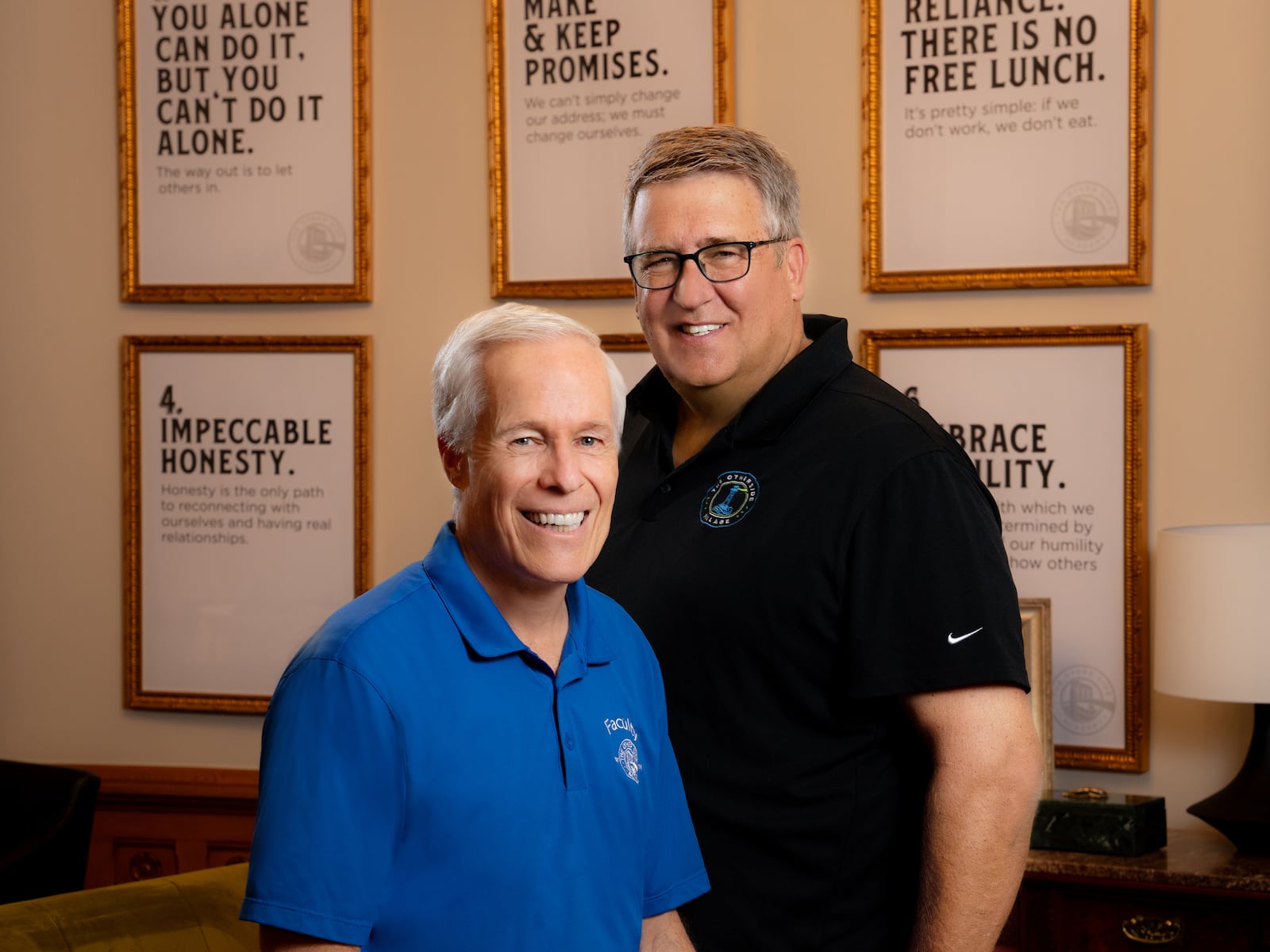This article originally appeared in Modern Day Utah Pioneers, a publication sponsored by Clarke Capital.
Joseph Grenny was making more money than he ever imagined. It was fun, fulfilling and rewarding. But something tugged at his heart — a desire to learn what it takes to influence change in people across the globe.
Then, in 1989, Grenny had an “irrepressible spiritual prompting” to quit his job and devote his life to understanding influence and how to use it to change the world. It was lunacy to leave this fiscal bonanza and jump into a world with no visible form of income to support his new family.
Grenny’s faithful father taught him, “When God speaks, do it. No questions asked.” He trusted these promptings, left his high-paying job and stepped into the unknown.
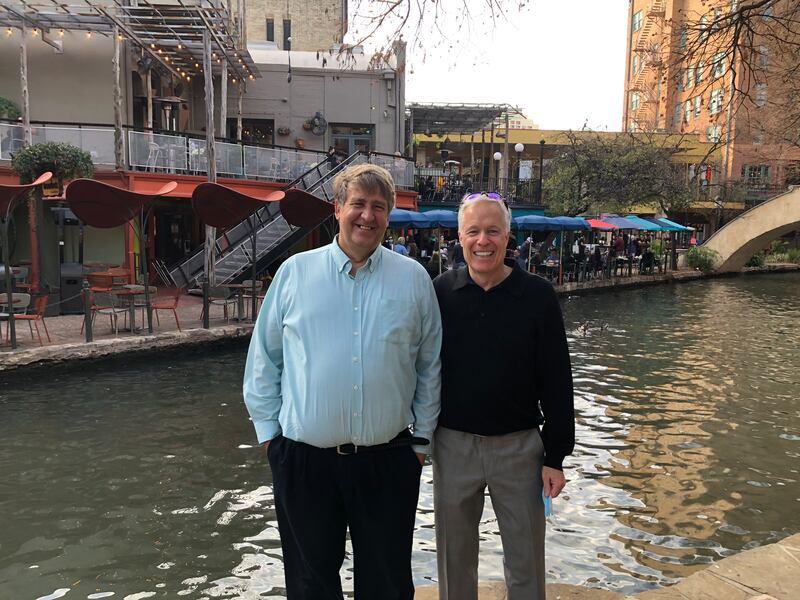
This spiritual pivot was critical in three areas: the development of Crucial Learning, a leadership training company; Grenny becoming a bestselling author, master teacher, consultant and world-renowned speaker; and Grenny’s learning innovative ways to serve marginalized individuals and communities.
Grenny learned all he could about influence and change. He connected with three like-minded, brilliant thinkers: Kerry Patterson, Al Switzler and Ron McMillian. Together, they formed Crucial Learning, focusing on the vital behaviors that most affect an organization’s ability to improve. They found that people’s inability to talk about emotionally and politically risky things undermined trust, decision-making, goal achievement and many other outcomes.
As a result, they cowrote “Crucial Conversations,” which became a New York Times bestseller that sold over 5 million copies, was translated into 26 languages, and became a staple in leadership and management training programs across the globe. Its principles also apply to personal and familial relationships, helping individuals navigate difficult discussions with empathy and effectiveness. Grenny and his partners went on to write other New York Times bestsellers to expand their work.
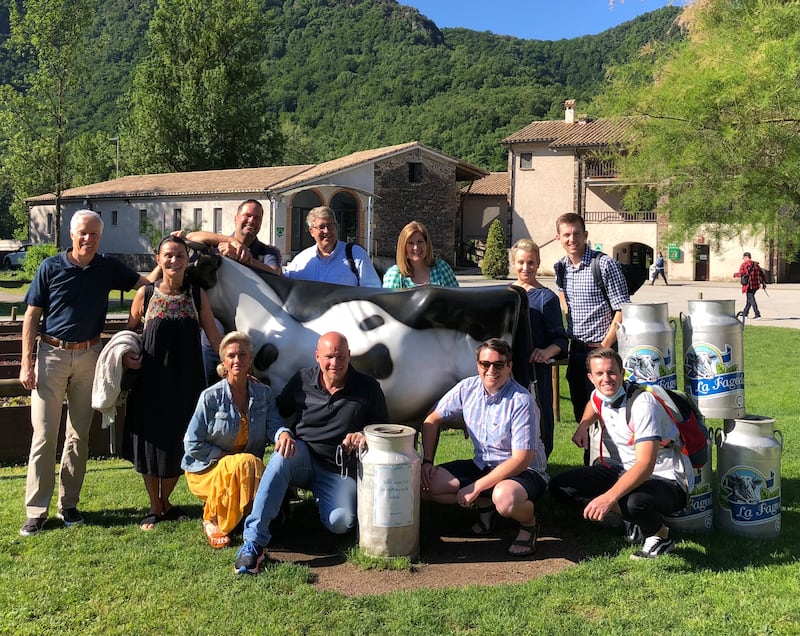
Grenny and his partners soon consulted with many Fortune 500 companies, refining Grenny’s skills in teaching, consulting and advising CEOs, as well as political, nonprofit and religious leaders on major change initiatives. Grenny hears from people about how his work has helped save their marriage or reconnect with a child. When he also sees, for example, 80 percent fewer injuries or fatalities than the previous year at a mining company or a healthcare organization have 50 percent fewer hospital-acquired infections due to his influence, he knows his work matters.
Grenny has been cited in leading national newspapers and interviewed on hundreds of national and local radio and television programs. He is in demand as a speaker, having delivered thousands of speeches in his career, some to crowds of over 100,000. Grenny’s engaging style is a sought-after mix of entertainment, practicality and foundational research.
You wouldn’t immediately see this potential for success if you looked at Grenny’s early years as a shy, insecure boy, but if you look closer, you see some remarkable traits emerging. At 12, Grenny found a real-life Mr. Miyagi to challenge him to master himself through Tang Soo Do. Soon, he was running to school barefoot and hitting his hands and feet against cinderblocks to toughen them up, eventually becoming a fourth-degree black belt.
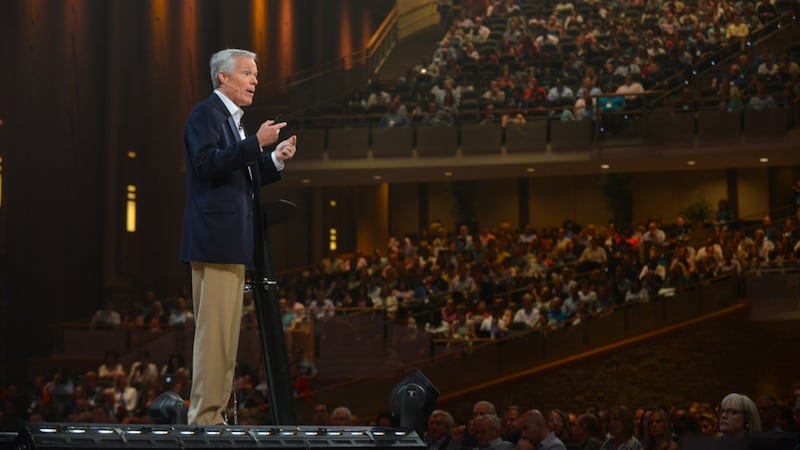
At 15, he started college and found the computer lab. He became so immersed in programming that he would often go 24 hours without stopping. At 17, he launched one of the early computer stores in the San Francisco Bay Area during the nascent days of the tech boom and ran that for the next five years.
Grenny’s drive, dedication and faith served him well as a Latter-day Saint missionary in Tahiti and later at Brigham Young University (BYU), where he fell in love with behavioral science after hearing Stephen Covey speak, finding this to be his platform to serve others. Grenny went to work for Covey, who became a friend and mentor. At a company work party, Grenny met the charming and intelligent Celia Waldron, fell in love and married her soon after. Grenny worked for Covey for five years before being prompted to go out on his own.
Grenny’s understanding of how behavioral science can address complex and difficult societal problems has led him to serve some of society’s most marginalized members. He has co-founded transformative nonprofits such as Unitus Labs, which serves those in abject poverty in places like Kenya and India, and, more recently, The Other Side Academy and The Other Side Village. Grenny has a profound commitment to uplift humanity.
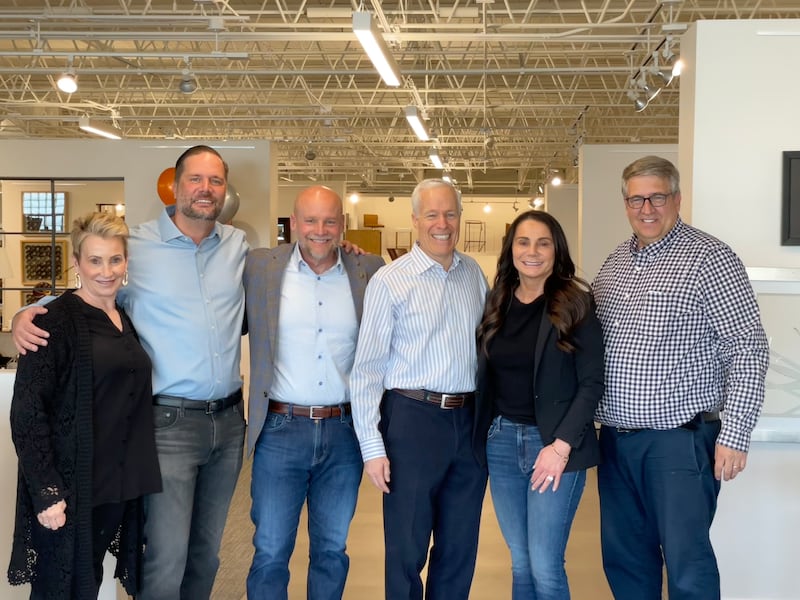
The Other Side Academy has campuses in Denver and Salt Lake City and serves those who have been caught in the throes of addiction and criminality. Participants live in a community of peers who hold each other accountable as they learn vocational and life skills, eventually returning to society as self-reliant, clean and contributing citizens. Participants spend their days working in one of the nonprofit’s award-winning social enterprises, such as The Other Side Movers, The Other Side Thrift Boutique or The Other Side Builders. The average resident at the academy has been arrested 25 times, and all have battled addictions. Seventy-one percent of graduates remain drug-free, crime-free and employed.
The Other Side Village will be a new human-first approach to homelessness — the focus is on whole-person change. This includes learning how to connect, be self-reliant and live in a sober and supportive community. The average resident in the village has been homeless for 8.5 years, and all have challenges with mental health and disabilities. The Salt Lake City village will eventually have over 400 homes in a clean, beautiful community with onsite medical and mental health services as well as onsite employment opportunities.
In both the academy and the village, you will find the following principles that align with Grenny’s philosophy of how people change:
Self-efficacy: I can solve my own problems and learn skills to help me live a full and meaningful life, no matter my circumstances.
Six sources of influence: Personal motives, abilities, social motivations, social support, incentives and the environment are all working on us all the time. People change in one of two ways: either some outside actor manipulates some of those sources of influence, or we do.
Truth and love: We change fastest when we are in an environment where people do two things for us: 1) tell us the truth about how our behavior affects them, and 2) refuse to give up on us. Truth and love are the two essential ingredients of rapid human change.
Leadership: No organization is ever healthier than its leaders. The Other Side Academy works because its senior leaders constantly strive to live at a higher moral level than the previous day. That gives them the credibility to demand it from others. In close to a decade, they haven’t had a single positive drug test or an act of violence. The leaders hold themselves first and foremost to rigorous standards of truth and love.
Grenny’s journey is one of profound impact, driven by a deep desire to change lives through the power of influence. Whether through his leadership training company, bestselling books or transformative nonprofits, he has dedicated his life to teaching others how to improve their circumstances and thrive. His work, rooted in self-efficacy, behavioral science and a strong moral compass, has touched millions and continues to inspire hope and change around the world.

